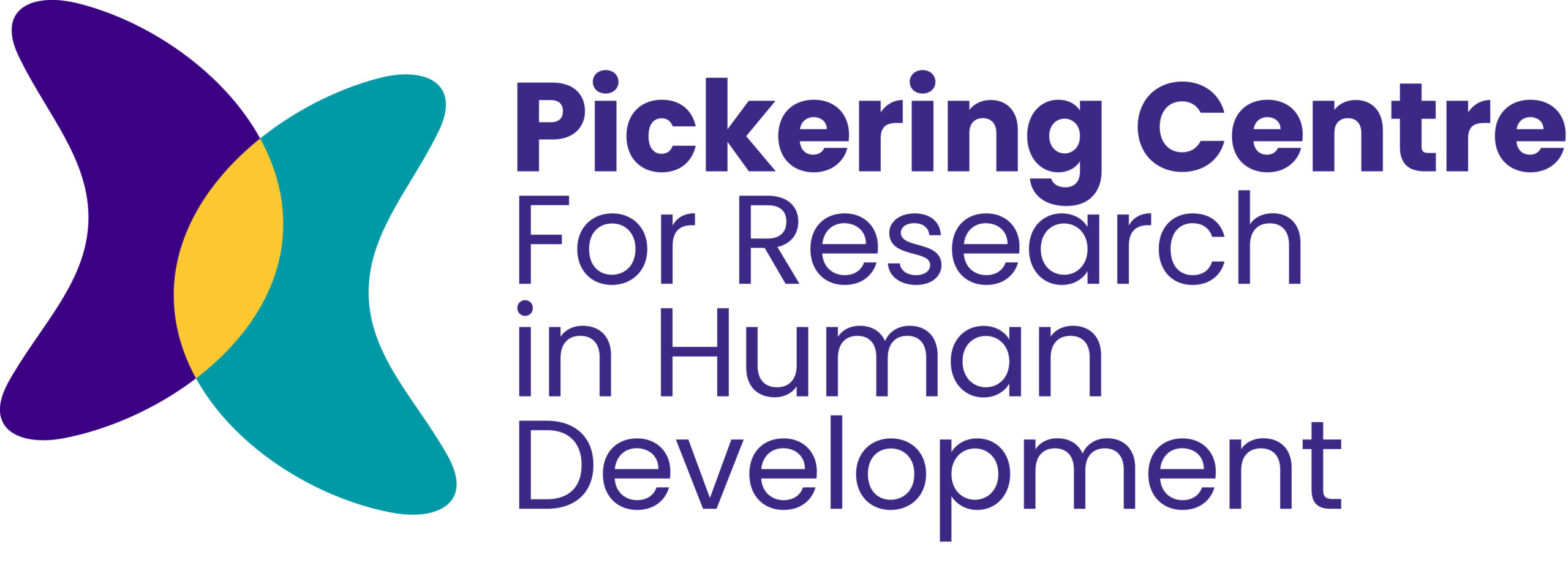Hyperfixation- What is it? Check out this episode of 580 CFRA Radio’s The Morning Rush, where postdoctoral student Dr. Carolynn Hare discusses hyperfixation and its relation to ADHD.
Motivations for Social Withdrawal and Socio-Emotional Functioning among Urban/Suburban Chinese Children
Children withdraw from opportunities for social interaction for a different reasons, which may impact upon adjustment differently across cultures. For example, with the shift in social structures and economic changes that have occurred in urban China over the last three decades, Chinese attitudes appear to have integrated with Western values. As a result, shyness (which was once adaptive) is now associated with negative outcomes. Do adjustment patterns associated with different motivations for social withdrawal (i.e., shyness, unsociability, avoidance) differ for children living within and outside of urban areas in China?
In this study, Dr. Robert Coplan collaborated with researchers at Shanghai Normal University to investigate links between motivations for social withdrawal (shyness, unsociability, avoidance) and socio-emotional adjustment in suburban and urban Chinese children. Findings revealed that all motivations for social withdrawal were risk factors for poor adjustment in both urban and suburban areas. However, unsociability was more risky in suburban areas, where more traditional values are held. Shyness and avoidance were more risky in urban areas, where cultural shifts toward independence and personal voice have taken place in recent years. Findings speak to the importance of distinguishing between motivations for social withdrawal among children living within and outside of urban China.
The Risks of Being a Wallflower: Exploring Links Between Introversion, Aspects of Solitude, and Indices of Well-Being in Adolescence
Ever wonder why introverts are less happy than extroverts? In a recent study, PhD student Anna Stone and her colleagues in the Solitude and Aloneliness (SoLo) Lab found that, in short, we don’t know why. But, we know that aspects related to spending time alone are not the reason. In other words, spending time alone does not seem to have a significant negative impact on your well-being.
However, aspects of solitude – rumination and shyness – are related to greater loneliness in introverts. Compared to extroverts, introverts are more likely to engage in negative thinking styles and worry about social pressures, which may make them think spending time alone is better than spending time with others. This is not always true, though. Feeling connected to others is vital for well-being. It is important for introverts to spend time with others, even if they don’t think they will enjoy it.
Do Preschoolers Save Better When They Budget? Check out this evidence-based infographic!
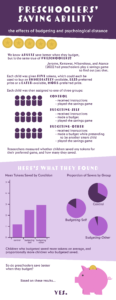
How can you make the most out of your time alone? Alicia McVarnock, a PhD student in Dr. Robert Coplan’s Solitude and Aloneliness Lab, has a few tips:
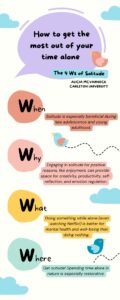
Is parental involvement the key to improving school attendance among children with ADHD? According to a recent article written by Christine Okigbo, the short answer is maybe. Want the long answer? The full article is available here.
Did you know that October is ADHD Awareness Month? Check out these infographics to help spread awareness and support young people with ADHD.
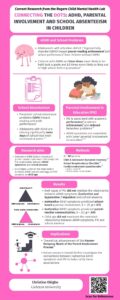
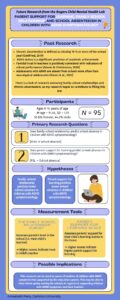
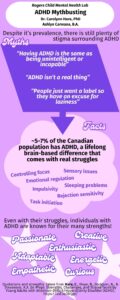
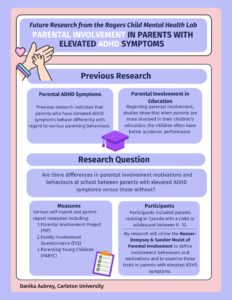
Want to Learn More?
To families, there is lots of exciting research going on in the Pickering Centre and there are opportunities for you and your child to get involved and participate! Here is a glimpse at what kinds of studies are going on:
- Early numeracy and math skills
- Storybook reading in families
- Youth extracurricular participation
- Friendships and peer relations
- Saving for the future and moral development
If you want to be notified about opportunities to participate in research at the Pickering Centre, please enter your email address in the box below to be added to our participant database. Entering your email address does not require you to participate in any studies, we will just use it to notify you of opportunities to participate.
Information and privacy: By providing your email address you are agreeing to be contacted about study opportunities and to have your email stored in our database. Your email address will only be used by researchers in the Pickering Centre to contact potential research participants. If you have any questions or concerns regarding the collection of this information, please contact the form administrator at aliciamcvarnock@cmail.carleton.ca.
